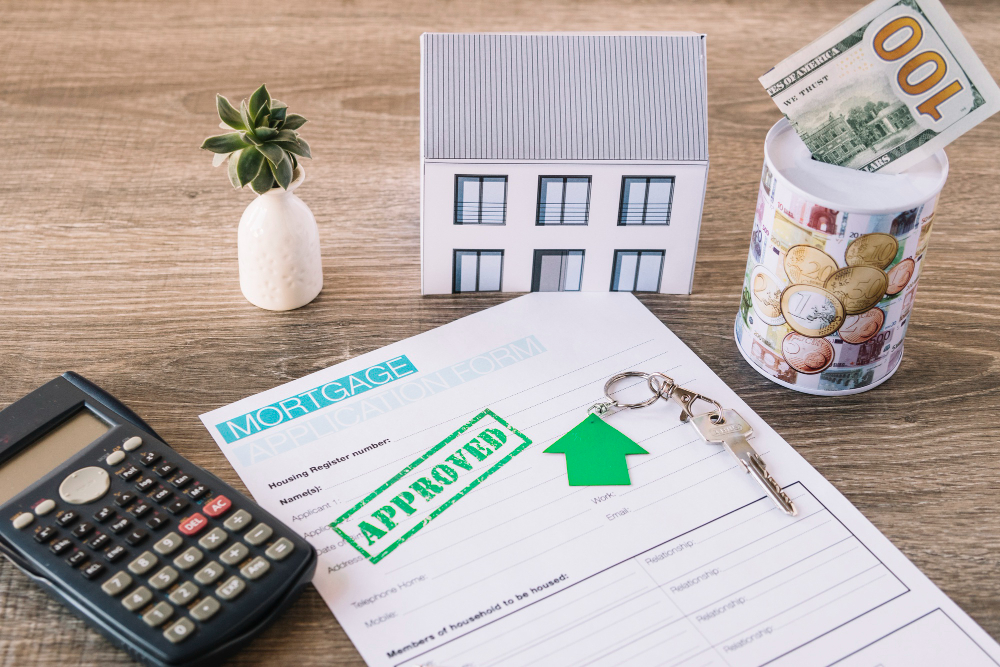
Are you dreaming of owning your home but worried that your less-than-perfect credit score or limited income might stand in the way? Fear not! Creativity and careful planning can open the door to homeownership, even if you have bad credit or a low income. This blog will explore some effective strategies to help you qualify for a mortgage and turn your homeownership dreams into a reality. 1. Know your credit situation The first step towards improving your chances of qualifying for a mortgage is understanding your credit situation. You can also request a copy of your credit report from the major credit bureaus and carefully review it for errors or discrepancies. If you spot any inaccuracies, take immediate steps to rectify them by contacting the credit bureau and providing the necessary documentation. While it may take time to repair your credit, every little improvement counts. 2. Build a strong down payment When you have bad credit or a low income, saving up for a down payment is crucial. A larger down payment demonstrates your commitment to the investment and reduces the lender's risk. Cut back on unnecessary expenses, create a budget, and explore ways to increase your savings. For example, consider starting a side hustle or taking on freelance work to generate additional income dedicated to your down payment. 3. Explore government assistance programs Many governments offer assistance programs to help individuals with low incomes or bad credit qualify for a mortgage. Research local, state, and federal programs that provide subsidies, down payment assistance, or other forms of financial aid. These programs can significantly improve your chances of obtaining a mortgage, so don't hesitate to take advantage of them. 4. Improve your debt-to-income ratio Your debt-to-income (DTI) ratio plays a vital role in mortgage qualification. Lenders prefer borrowers with a lower DTI ratio, indicating better financial stability and the ability to manage monthly payments. Therefore, focus on paying off high-interest debts and reducing your overall debt load to improve your DTI ratio. In addition, consider debt consolidation to make your payments more manageable and increase your chances of qualifying for a mortgage. 6. Seek professional guidance Consulting with a mortgage professional or housing counselor can provide invaluable guidance throughout the qualification process. These experts have in-depth knowledge of the mortgage industry and can help you navigate the complexities of obtaining a mortgage with bad credit or a low income. In addition, they can recommend suitable loan programs, assist with paperwork, and provide insights into improving your financial profile. 7. Be realistic When applying for a mortgage with bad credit or low income, setting realistic expectations is crucial. Start by looking for homes within your budget, and avoid stretching your finances to the limit. Being realistic about your financial situation will make the qualification process easier and prevent future financial stress. 8. Demonstrate financial discipline While improving your credit score takes time, you can showcase your financial discipline to lenders. Pay your bills on time, avoid taking on new debts, and keep your credit utilization low. These practices contribute to a positive credit history and demonstrate responsible financial behavior. Lenders will appreciate your efforts to manage your finances effectively, increasing your chances of mortgage qualification. Qualifying for a mortgage with bad credit or low income may require extra effort and creativity, but it is not impossible. By implementing the above-mentioned strategies, you can improve your credit score, save for a larger down payment, explore assistance programs, and seek professional guidance to increase your chances of obtaining a mortgage. Remember, homeownership is within reach, and you can unlock the door to your dream home with determination.
Enter your email address and we will send you a link to change your password.